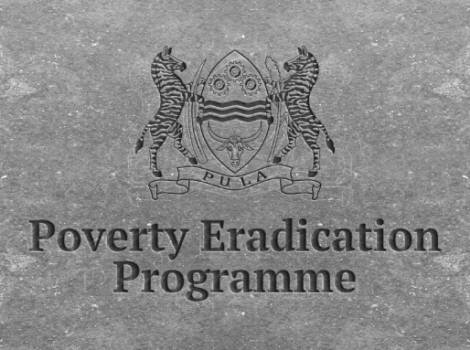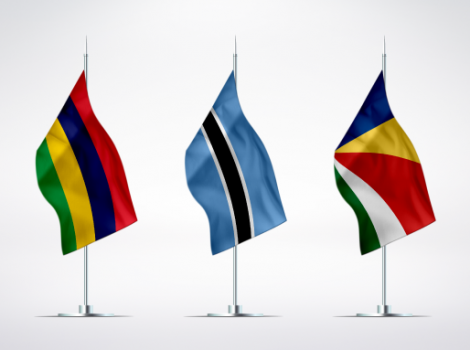According to the Doing Business 2017: Equal Opportunity for All report released on the 25th of October, Botswana has reportedly maintained its previous position on the ease of doing business index. With an overall ranking of 71 out of 190 economies, this year Botswana also showed a slight improvement in the distance to frontier score (a measurement of the gap between an economy’s performance and best practice) of 0.16 percentage points; currently 65.55 percent compared to 65.39 percent the previous year.
Botswana ranked third among Sub-Saharan Africa economies; with Mauritius ranked the highest (49), followed by Rwanda (56). The report also notes that Botswana implemented a reform over the course of the last year in the area of Dealing with Construction Permits by abolishing the requirement to submit a rates clearance certificate in order to obtain a building permit.
“Botswana’s position on the Doing Business has been steady over the past several years,” said Elene Imnadze, World Bank Botswana Country Representative, “While retaining its spot among the best ranked economies in the region, it still lags behind many of the world’s best practices. Sub-Saharan Africa is the region with the highest number of reforms globally – this year 37 of the region’s 48 economies implemented a record 80 reforms. Botswana is encouraged to step up the pace of its efforts in order to keep up with this fast pace reforms in coming years.”
Doing Business focuses on regulation that affects small and medium-size enterprises, operating in the largest business city of an economy, across 11 areas. Ten of these areas—starting a business, dealing with construction permits, getting electricity, registering property, getting credit, protecting minority investors, paying taxes, trading across borders, enforcing contracts and resolving insolvency. Doing Business also publishes indicators on labour market regulation; which are not included in the distance to frontier score or ease of doing business ranking.
“The economic literature has shown the importance of such regulations for firm and job creation, international trade and financial inclusion,” the report stated.
The report, which is in its 14th edition, is titled “Equal opportunity for all”, and for the first time, the Washington-based development lender took gender factors into consideration in assessing how easy it is to start a business, register property and enforce contracts.
“Why is it important to incorporate a measure of gender differences? First, around half of the world’s population is female and therefore it is important that Doing Business measures aspects of regulation that specifically impact this large group. For some years now the Women, Business and the Law data have shown, for example, that in some economies a female entrepreneur faces more obstacles than her male counterpart for a variety of economic and business activities. To the extent that if these obstacles are ignored, the Doing Business data will be incomplete,” the report explained.
According to the report, in the previous year leading to the current year, 137 economies worldwide implemented 283 business regulatory reforms. “This represents an increase of more than 20% compared to last year. In fact, the number of economies that implemented at least one reform increased from 122 to 137, indicating that there are more economies trying to improve in the areas measured in Doing Business.”
This year’s Doing Business report includes, for the first time, a gender dimension in three indicators- Starting a Business, Registering Property and Enforcing Contracts. In Botswana there are no gender differences. For example, women can start a business in the same way as men, yet, 13 economies in Sub-Saharan Africa require additional hurdles for women entrepreneurs.
The Paying Taxes indicator has been expanded to cover post-filing processes, such as tax audits and VAT refund. The report finds that the region has room for improvement in these new areas. In Botswana, similar to some economies in Sub-Saharan Africa, taxpayers are exposed to a field audit whereby the auditor visits the taxpayers.
The report highlighted that Sub-Saharan Africa economies underperform in the areas of Getting Electricity, Trading Across Borders and Dealing with Construction Permits. For example, it takes an average of 120 days to obtain a permanent electricity connection to the grid in Sub-Saharan Africa, compared to the OECD high-income countries in which it takes 76 days. This shows that Botswana is almost on the same level with OECD countries, as it takes only 77 days to connect electricity to the grid.
Of the economies in Europe and Central Asia, 96% implemented at least one Doing Business reform. Sub-Saharan Africa is said to be the region with the second-highest incidence of reforms, with 77% of economies implementing at least one reform captured by Doing Business.
However, the report also noted that compared to previous years, there is a lower number of top improvers from Sub-Saharan Africa even though this region accounts for over a quarter of all reforms globally. This comes after Kenya was found to be the only African country that made the biggest improvement, moving 16 places up to the 92nd position.
Source: The World Bank
Weekend Post
Photo credit: janeb13



